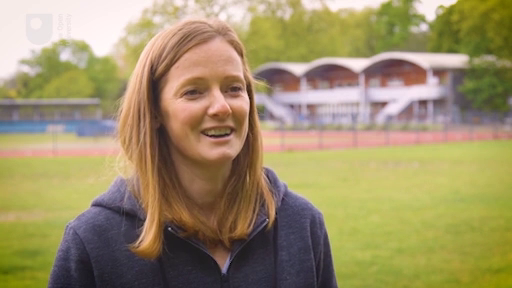1 The benefits of sport psychology intervention
Using psychological interventions for people with a sport injury can lead to several benefits, such as:
- increased adherence to rehabilitation programmes
- more positive attitude towards recovery
- increased motivation
- pain management
- enhanced coping skills
- reduced stress, anxiety and depression, and
- enhanced healing.
(Petitpas and Danish, 1995; Heil and Fine, 1999; Wiese-Bjornstal and Shaffer, 1999; Williams and Scherzer, 2006)
In the next activity you will explore Helen Richardson-Walsh’s experience of using psychological interventions while injured.
Activity 1 Using psychological techniques in sport injury
- Watch the video below of 2016 Olympic hockey champion Helen Richardson-Walsh. What are some of the psychological strategies she used to aid her recovery from injury?
- Reflect on any role you have in supporting individuals with sport injury (e.g. coach, instructor, team mate, partner). Which aspects of your work could be considered to be psychological strategies or techniques? If you don’t hold such a role think about how you have been supported when you’ve been injured or how you might like to be supported if you were injured.

Transcript: Video 1 Helen Richardson-Walsh
Discussion
- Helen describes three key strategies that she used, all of which are discussed in either this session or in Session 8. First, she used goal setting to help her focus. Second, she visualised herself achieving her goal of becoming Olympic champion (imagery), and finally she used a blog as a way of sharing and articulating her experience and connecting to other people (social support).
- You might find that you tend to use a lot of psychology in your day-to-day practice without even realising it. Sometimes this use of psychology is explicit (for example, recommending the use of psychological techniques or referring someone to a sport and exercise psychologist), and sometimes it is less explicit (for example, the way in which you choose to speak to an individual about their injury).
In the activity you have just completed Helen Richardson-Walsh describes how she used imagery while she was injured. In the next section you will explore imagery in more detail.
